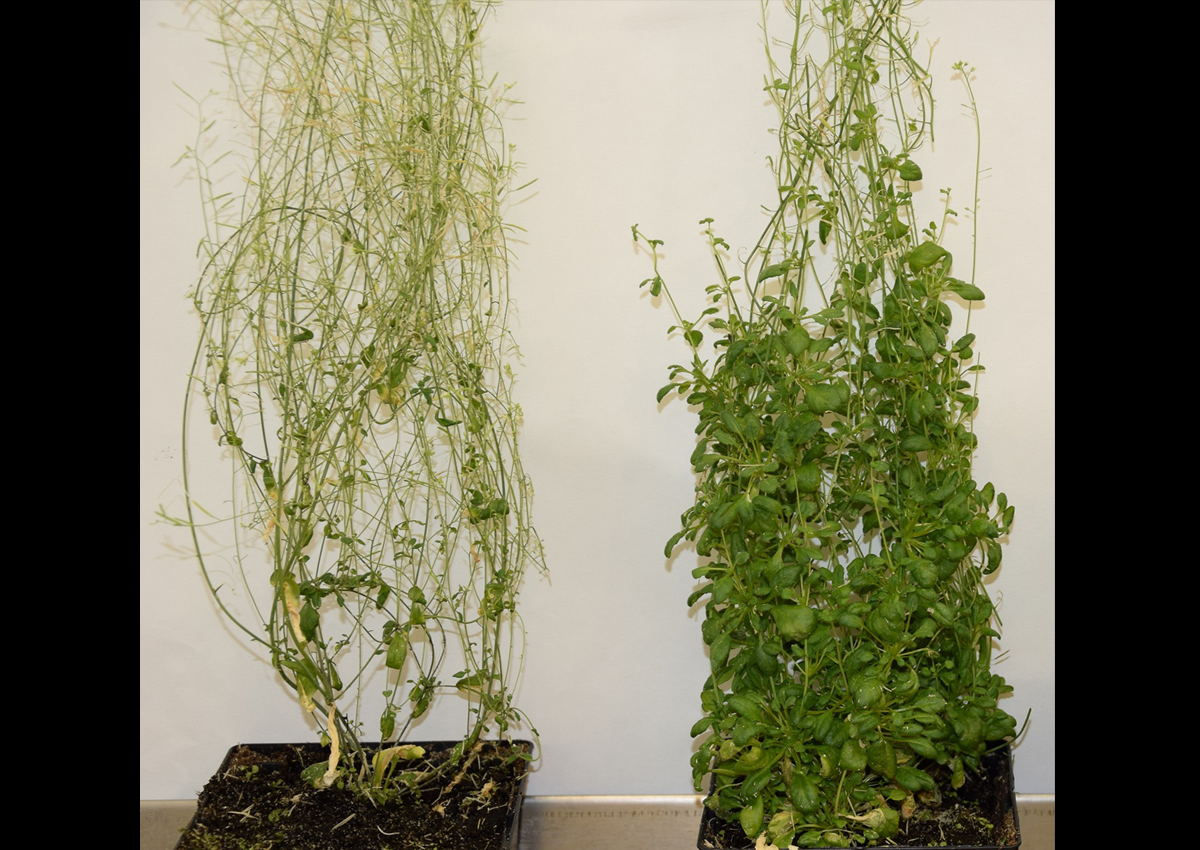
Researchers Discover Longevity Gene in Plants
April 22, 2020| |
Researchers from the University of Leiden have discovered a gene that allows annual plants to grow after flowering, instead of dying. Using Arabidopsis, first author Omid Karami demonstrated how the AHL15 gene works. He overexpressed the gene in Arabidopsis so that it is much more active than normal.
In the modified Arabidopsis plants, some growing points remained in the vegetative phase. The plants continued to grow after flowering and can blossom several times. When the researchers disabled the gene, they noticed that the plants had a shorter lifespan than normal. By doing so, they demonstrate that the AHL15 gene, which they have named REJUVENATOR, regulates plant longevity.
The discovery of AHL15 gene contributes to fundamental knowledge about plant life history and aging, says Offringa. The gene may also provide answers to the question of why certain species are annuals and others are perennial. According to Offringa, practical applications are also conceivable, such as for agriculture. Many food crops, such as rice and wheat, are annuals.
For more details, read the article from the University of Leiden.
| |
You might also like:
- Genome Modification Delays Petal Senescence in Japanese Morning Glory
- Cornell Scientists Discover 'Fountain of Youth' for Leaves
- Scientists Work on Preserving the Sahara Olive Tree
Biotech Updates is a weekly newsletter of ISAAA, a not-for-profit organization. It is distributed for free to over 22,000 subscribers worldwide to inform them about the key developments in biosciences, especially in biotechnology. Your support will help us in our mission to feed the world with knowledge. You can help by donating as little as $10.
-
See more articles:
-
News from Around the World
- Science Speaks, ISAAA's Blog is Now Up!
- GE Crops Yielded Massive Economic and Environmental Benefits
- Effective Science Communication Goes Beyond Communicating Science, Arujanan Says
- Researchers Discover Longevity Gene in Plants
-
Research Highlights
- International Team Completes Study on Cotton Genomics to Improve Cotton Varieties
- Experts Report an Improved Soybean Transformation Method
-
Plant
- Researchers to Improve Berries Using CRISPR Technology
- Argentina's Years of Experience in Gene Editing Regulation
-
Health
- COVID-19 Vaccine Development Using New, Fast-Growing Tobacco Plant Technology
- A Call to Action for World Leaders: Prevent Global Food Security Crisis in COVID-19 Fight
-
Read the latest: - Biotech Updates (December 17, 2025)
- Gene Editing Supplement (December 17, 2025)
- Gene Drive Supplement (February 22, 2023)
-
Subscribe to BU: - Share
- Tweet

